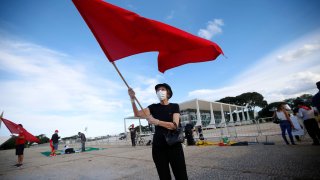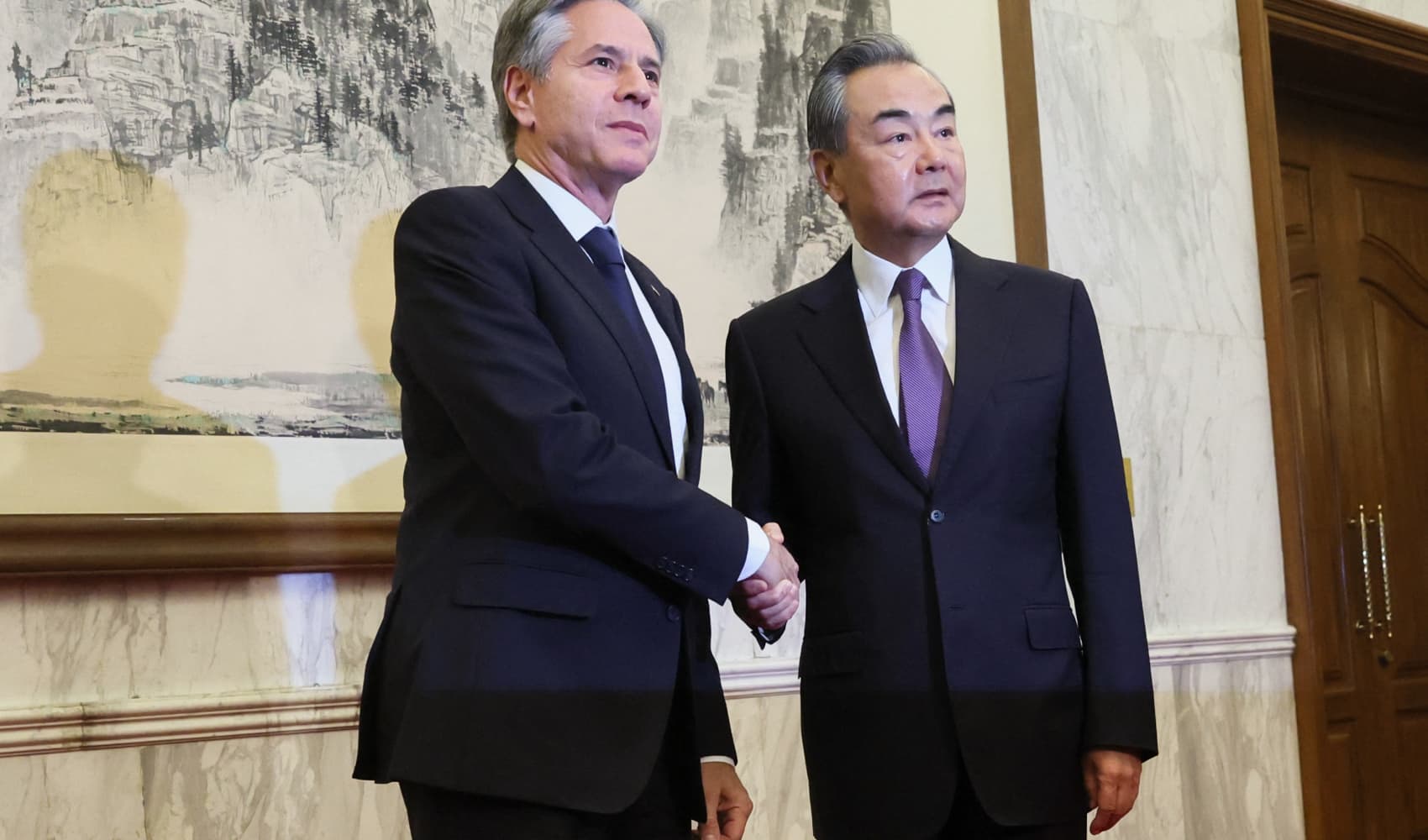
- With the global economy roaring back from the downturns experienced at the height of the Covid-19 pandemic, a divergence has appeared between advanced and emerging economies.
- A theme analysts will be looking at in 2022 is how landmark elections may lead to a shift away from austerity policies in several high-profile EM nations, which could spark concerns about public debt.
Pivotal elections, referendums, reforms and geopolitical tensions could shape the economic trajectory across emerging markets this year.
With the global economy roaring back from the downturns experienced at the height of the Covid-19 pandemic, a divergence has appeared between advanced and emerging economies.
The World Bank cautioned last week that as growth slows in 2022 and 2023 amid renewed threats from Covid variants and surging inflation, debt and income inequality, along with an unwinding of fiscal and monetary stimulus, emerging economies are particularly vulnerable.
Get a weekly recap of the latest San Francisco Bay Area housing news. Sign up for NBC Bay Area’s Housing Deconstructed newsletter.
"Rising inequality and security challenges are particularly harmful for developing countries," World Bank President David Malpass said.
The D.C.-based institution projected that while all advanced economies will have achieved a full output recovery by 2023, emerging and developing economies will remain 4% below the pre-pandemic trend. Countries affected by conflict or fragile political institutions will be 7.5% lower, the report added.
Austerity under threat
Money Report
A key theme analysts will be looking at in 2022 is how landmark elections may lead to a shift away from austerity policies in several high-profile EM nations, which could spark concerns about public debt.
Brazil goes to the polls in October after incumbent right-wing President Jair Bolsonaro increased spending to counter fading public support, and further moves in this direction in the run-up to the election could be on the cards, according to Shilan Shah, senior economist at Capital Economics.
Former leftist President Luiz Inacio Lula da Silva currently retains a huge lead in the polls, with inflation and a Covid resurgence top of voters' agenda, and Shah suggested he may be even less committed to fiscal discipline than Bolsonaro.
"Whichever way you cut it then, it looks like Brazil's public debt-to-GDP ratio will climb higher, increasing the country's risk premium," Shah said.
"And the fallout could be altogether worse if Lula proves to be more like the firebrand he was in the 1990s than the relative moderate of the 2000s."
Although its public finances are not deemed to be as vulnerable as Brazil's, Shah noted that Colombia's presidential election could also see a similar leftward shift that would deepen concerns about its debt position.
In South Africa, internal discord in the ruling ANC will be front and center ahead of a party leadership election in December. President Cyril Ramaphosa has long struggled to galvanize two factions of the party, especially with regards to his economic reform and privatization agenda.
Local elections in November saw the ANC post its worst result since taking power in 1994.
Shah suggested that in order to shore up his support and secure a second term as party leader, Ramaphosa may be inclined to "water down the austerity plans needed to stabilize the high (and rising) debt ratio."
Ramaphosa's Jan. 8 statement, in which the ANC sets out its priorities for the year, was candid about the economic and social challenges faced by the country and his party, and addressed some of the actions he intends to take to steady the ship.
However, in a note Monday, Oxford Economics Africa senior political analyst Louw Nel said the statement had increasingly resembled a "paint-by-numbers exercise" in recent years.
"This is at least partially because it is written by committee, and the party is shackled by the need to achieve broad consensus," Nel added.
He anticipates that Ramaphosa will almost certainly seek a second term and remains best placed to win his party's endorsement, but added that "commitments tend to fall by the wayside when the cut-and-thrust of elective politics becomes more intense."
Liberalization and productivity
Political events in several other countries may also affect progress on key economic reforms. Capital Economics' Shah suggested that an "uninspiring" list of presidential candidates in the Philippines offers little hope of reforms being implemented.
Meanwhile in India, a poor performance for the ruling BJP in this year's local elections would make Prime Minister Narenda Modi's government "even more nervous of pursuing liberalisation measures."
Chile may see greater state influence over the economy following a referendum on its new constitution in the third quarter of 2022. Shah suggested this may enhance the provision of public services, but risks creating economic inefficiencies and deterring investment.
Should Xi Jinping remain as leader of the Chinese Communist Party following the end of his second term later this year, it would pave the way for a "more autocratic style of policymaking," Shah argued.
"The campaign-style approach to regulation will continue, and large private firms will remain under pressure to adapt to the Party's priorities, further sapping productivity growth."
Geopolitical tensions
The threat of an escalation of tensions between Russia and NATO over Ukraine remains a key geopolitical threat to markets. The breakdown of negotiations prompted U.S. diplomatic official Michael Carpenter to say that "the drumbeat of war is sounding loud and the rhetoric has gotten rather shrill."
Capital Economics emerging markets analysts believe the chance of an outright Russian invasion of Ukraine is low and that troop build-up near the border is more likely aimed at drawing concessions from NATO, but the prospect of more punitive Western sanctions against Russia will remain on the table.
Meanwhile, a deterioration of relations between China and South Korea could emerge if the opposition PPP were to win the Korean elections in March, having promised to strengthen alliances with the U.S.
Shah suggested political fallouts with China could have "significant economic consequences if they led to a renewed boycott of Korean goods by Chinese consumers."






